Vital records birth, marriage, and death certificates are essential documents that hold key details about life events. Whether you’re managing legal affairs, conducting genealogy research, or simply archiving family history, understanding how to access these records in the UK is invaluable.
This blog offers an in-depth, practical guide on how to obtain UK birth, marriage, and death records both online and offline, including insights into official processes, legal access, and trusted sources.
What Are Birth, Marriage, and Death Records in the UK?
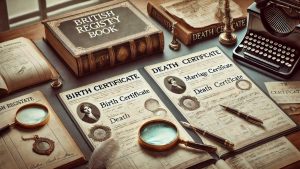
Birth, marriage, and death records in the UK are collectively known as vital records. They form the backbone of civil documentation and are managed primarily through the General Register Office (GRO) in England and Wales.
These records contain:
- Birth records: Full name, date and place of birth, parents’ names, and sometimes parent occupations.
- Marriage records: Names of both spouses, date and place of marriage, ages, marital status, and occupations.
- Death records: Name of deceased, date and place of death, cause of death, and informant details.
These documents are not only legal identifiers but also rich sources for personal and historical insights, helping families track lineage, settle estates, and even correct legal discrepancies.
How Does Civil Registration Work in the UK?

Civil registration was introduced in 1837 in England and Wales as a centralised system to record births, marriages, and deaths. The GRO, part of HM Passport Office, is responsible for maintaining these records.
Here’s how it works:
- Births must be registered within 42 days by the parents or authorised persons.
- Marriages are registered at the time of the ceremony by the officiating registrar.
- Deaths must be reported within 5 days, or 7 in some cases involving a coroner.
Each event is recorded in both local register offices and a national register. The details are then indexed, enabling individuals to locate and request certificates at any point in time.
This system ensures legal identity, supports public health monitoring, and enables genealogical research across generations.
Where Are Records of Births, Deaths, and Marriages Stored in the UK?

Records are stored in a few different places depending on the date, region, and type of record:
1. General Register Office (GRO)
The GRO is the central authority for civil registration in England and Wales. Their database holds records from 1837 to the present, and digital indexes can be searched online.
2. Local Register Offices
Each town or borough in the UK has its own register office. These offices hold original records for events that occurred locally. In many cases, faster services are available through these offices compared to the GRO.
3. National Archives
For events before civil registration began (pre-1837), the best source is church records or parish registries stored in county archives or the UK National Archives.
4. Online Genealogy Platforms
Sites like Ancestry, Findmypast, and FreeBMD host large digital collections of UK records. While these aren’t always official copies, they’re ideal for historical research.
How Do I Get a Birth, Marriage and Death Certificate in the UK?

Obtaining a vital record is a straightforward process when you follow the right steps.
Step-by-step Guide
- Identify the event details: Full names, date of event, and place of registration.
- Choose a method: Online through GRO, by post, or in-person at a local register office.
- Pay the required fee: Standard service is typically £11, while priority services cost more.
- Select delivery: Options include standard 2nd class, tracked delivery, or express.
You can also order records on behalf of others, as UK laws allow open access to public records—though recent ones (usually under 50 years) may have limited information.
Where Can You Find UK Birth Records Online and Offline?
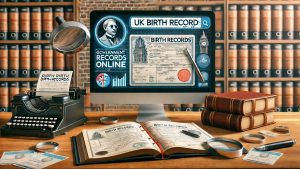
Online Resources
- GRO Online Index: Offers searchable records with mother’s maiden names (from 1837 onwards).
- Findmypast.co.uk & Ancestry.co.uk: Provide digitised records and family tree tools.
- FreeBMD: A volunteer-run index covering England and Wales from 1837 to 1992.
Offline Access
- Local Register Offices: Request certificates directly if you know the district.
- County Archives & Libraries: Especially useful for pre-1837 parish records.
Tip: Use more than one source to confirm accuracy—names may be misspelled or misrecorded in older documents.
How Can You Order a Marriage Certificate in the UK?
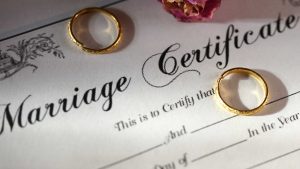
To order a marriage certificate, you’ll need:
- Names of both individuals
- Date and location of the marriage
- Approximate age or birth years
Application Methods
- Online via GOV.UK or GRO
- In-person at the register office where the marriage was recorded
- By post using a certificate application form
You can also order certified copies for legal use, such as in court proceedings, immigration applications, or name changes.
What Is the Process to Obtain a UK Death Certificate?
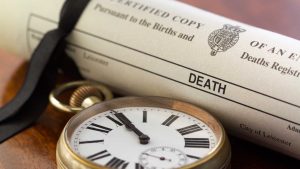
Here’s how it works?
- Visit GOV.UK
- Provide full name, date of death, and place of death.
- Choose between standard or priority processing.
- Pay the standard fee (£11 or higher with faster delivery).
The death certificate may include the cause of death, useful in cases involving insurance, legal matters, or health history.
In certain situations such as coroner’s inquests you may need to request additional documentation before the death certificate is released.
Can You Get a Copy of a Marriage Certificate After Divorce in the UK?

Yes, marriage records are permanent public records, regardless of whether the couple later divorces.
A marriage certificate may be needed post-divorce for:
- Proving a former marriage
- Applying for financial claims or benefits
- Immigration and legal procedures
You can order this just like any other certificate through the GRO or the relevant local register office.
How to Use Vital Records for Genealogy and Family History Research?

Vital records are the foundation of ancestry research.
Benefits include
- Tracking generations of births and marriages
- Discovering surnames, occupations, and migration patterns
- Identifying unknown relatives or confirming family lore
Combine vital records with census records, military archives, and church records for a full genealogical picture.
Can You Access Historical Birth, Marriage, and Death Records in the UK?
Yes, historical records become available to the public after a certain time:
| Type of Record | Publicly Available After |
| Birth | 100 years |
| Marriage | 75 years |
| Death | 50 years |
Older records are available via:
- FreeBMD
- GRO historical index
- The National Archives
- County record offices
These are valuable for historians, genealogists, and authors researching historical events.
How Secure and Private Are Vital Records in the UK?

Privacy & Access
- Recent records include limited information for privacy.
- Only certified copies include full details.
- GDPR laws ensure responsible handling of personal information.
Most websites use encrypted servers and verified ID processes to prevent misuse of sensitive data.
What Is the Best Way to Order Birth, Marriage, and Death Certificates Online?

The most trusted source is the official GOV.UK platform or directly through the General Register Office.
Third-party services should be
- UK-based (.co.uk domain)
- Transparent about fees
- Verified and reviewed
Avoid unverified international sites that may charge unnecessary handling fees or deliver inaccurate documents.
What Should You Know Before Requesting UK Vital Records?

Here are a few common considerations:
- Always double-check spellings and event dates.
- Understand refund rules if records aren’t found.
- Certificates may take longer to arrive during peak periods.
- If unsure of location, search GRO index by county or use third-party databases.
Planning ahead avoids delays and helps ensure accuracy in applications.
How Long Does It Take to Receive a Birth, Marriage, or Death Certificate in the UK?
Timeframes for receiving vital records in the UK can vary depending on how you order, the delivery method chosen, and the time of year.
Typical turnaround times
| Service Type | Estimated Timeframe |
| Standard Delivery | 5 to 15 working days |
| Priority/Express | 1 to 2 working days |
| Overseas Delivery | 10 to 28 days (depending on location) |
Delays can occur during peak periods like holidays or following public health events. For urgent requests—like for court or travel—you should always select the priority service through the GRO.
Tip: Always double-check confirmation emails and ensure your address is correct to avoid additional delays.
Can You Access Someone Else’s Birth, Marriage, or Death Records in the UK?

Yes, but with limitations. The UK operates a fairly open records policy for historic vital events, but access to recent records is more controlled.
Here’s what you can and can’t do?
- Public Records: Anyone can request certificates for events over 50–100 years ago.
- Recent Events: You can order certificates for another person, but the details provided will be limited (e.g., a recent birth certificate will not include parental occupation unless you’re a parent).
- Privacy Laws: Data protection applies, especially for events within the last 50 years.
You do not need to prove relationship in most cases, unless you’re seeking full details of a recent certificate, in which case additional identification or authorisation might be required.
Are Digital Copies of Birth, Marriage, and Death Records Accepted for Legal Use in the UK?
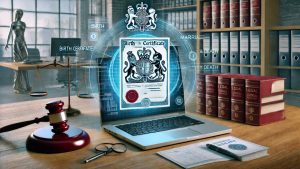
With more organisations going digital, many people ask if PDF or scanned copies of vital records are legally accepted. The answer depends on the context.
Legal use depends on the following
- Government Services: Most departments still require original or certified physical copies.
- Banks, Schools, and Employers: May accept scanned certified copies, especially when submitted via secure platforms.
- Genealogy and Research: Digital scans are fine for personal or historical use.
However, for official matters like visa applications, legal claims, or registration, it is safest to provide the original document issued by the GRO or local register office.
Conclusion
Whether you’re applying for a passport, resolving legal matters, or building a family tree, access to birth, marriage and death records is a crucial step in verifying identity, family links, and historical context. Thanks to online portals, historical archives, and structured civil registration, the UK makes it easier than ever to obtain these vital documents efficiently and securely.
FAQs About Birth, Marriage, and Death Records
Are UK birth records available for free online?
Only indexes are free. Official certificates require a fee and application.
Can I order a certificate if I live abroad?
Yes, international orders are accepted via the GRO and GOV.UK websites.
What if I only know partial details about the event?
GRO search tools and genealogy websites allow flexible searching using year ranges and regions.
How do I request a correction on a certificate?
You must apply to the GRO or the local office with supporting documents proving the correct information.
Are Scottish and Northern Irish records managed separately?
Yes, they are handled by National Records of Scotland and General Register Office for Northern Ireland (GRONI) respectively.
Is there a way to track my certificate order?
Yes, if ordered online, tracking information will be provided with certain delivery options.
Can I access adoption-related birth records?
Yes, but the process is different. Adoptees can request original birth information via a special application to the GRO.








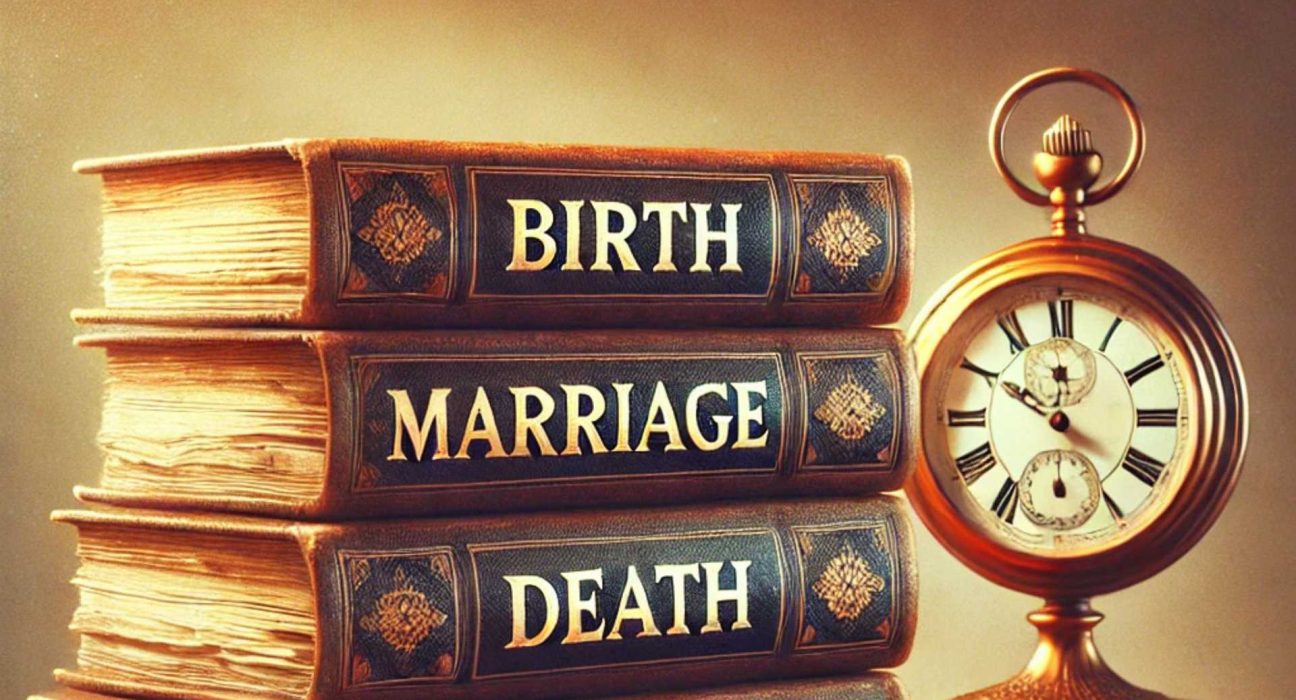
Leave feedback about this